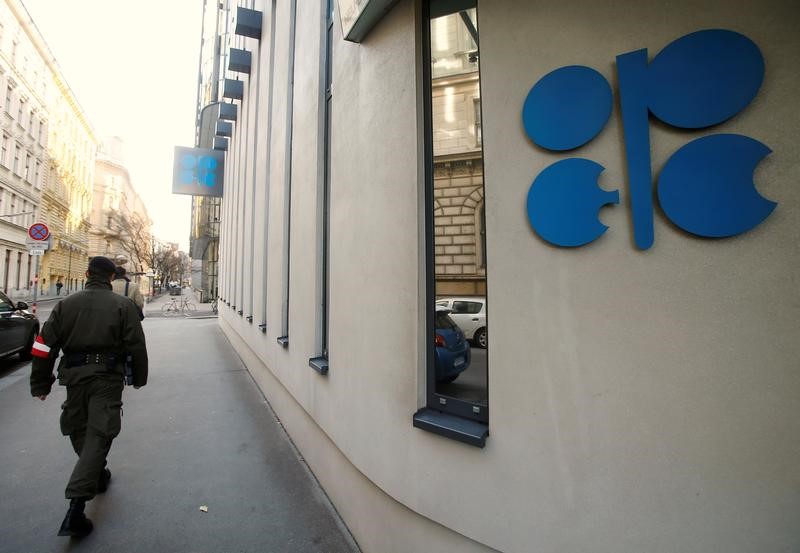By Libby George and Ahmad Ghaddar
LONDON (Reuters) - A global deal to cut oil production has had the unintended consequence of aiding Europe's older refineries by bolstering supplies of light crude while curbing shipments of the heavier grades favoured by more advanced plants in other continents.
These European units, long thought doomed by competition from state-of-the-art refineries in the Middle East, Asia and the United States, are in the right place at the right time - enjoying good demand and oil availability that is, for them, growing.
"European refiners are well positioned versus the OPEC cuts," said David Wech, managing director of consultancy JBC Energy. "The supply that is taken out of the market hits primarily the Asian market."
A deal between the Organization of the Petroleum Exporting Countries and non-member producers to cut output by 1.8 million barrels per day (bpd) has held oil prices roughly 20 percent above the low just before they sealed the pact late last year.
Pricier crude often saps refiners' earnings. But refinery margins, a measure of profit, stood near $7 per barrel for a simple plant processing Brent crude in Rotterdam, Reuters data showed, 50 percent above the first-quarter average last year.
Part of the benefit is that most of the oil cut by OPEC was heavy crude preferred by the more complex refineries, which by and large are not in Europe.
European refineries are in general older and less complex than the newest units, such as the giant Jamnagar plant in India. Simpler refineries often prefer easier-to-process light oil, which is in abundance in Europe's backyard as OPEC producers Libya and Nigeria were exempt from the cuts. Crude from Kazakhstan's Kashagan field is also pumping away.
Meanwhile, while Russia has cut overall production, exports of its Urals crude are pushing higher in the first half of this year.
As a result, the likes of Italy's Saras (MI:SRS), Greece's Hellenic Petroleum (AT:HEPr) and majors that run refineries in Europe such as BP (L:BP), Royal Dutch Shell (L:RDSa) and ENI (MI:ENI) have access to a range of crude cargoes.
"In general, the more locally grown crudes ... were not included as part of the (supply-cut) agreement," said Steve Sawyer, head of refining at FGE Energy.
The forecast for margins is so good that some refineries, such as Turkey's Tupras (IS:TUPRS), have postponed maintenance shutdowns that were scheduled for the spring, industry sources told Reuters.
SWING PRODUCERS
Still-strong demand for fuels, and refinery woes elsewhere, are also helping.
The International Energy Agency raised its 2017 forecast for growth in global oil demand to 1.4 million bpd. But at the same time, refineries in Latin American oil producers Venezuela, Mexico and Brazil have grappled with fires, unplanned shutdowns and lower production - leaving little surplus refining capacity.
"Europe's refineries are the world's marginal refineries. They are the swing capacity," Sawyer said.
Lower Latin American production has also slashed the availability of sulphur-rich fuel oil, making it more profitable.
Although fuel oil usually costs refineries money to sell, simple plants that lack desulphurisation capacity - such as those in the Mediterranean - have no choice but to crank out what is normally seen as a byproduct.
All these factors are likely to keep refining margins "robust and healthy" for at least the first half of the year, Gunvor's chief economist David Fyfe said at a recent conference in Antwerp.

"It's a confluence of factors. It's crude availabilities and it's strong (fuel oil)," Fyfe said.